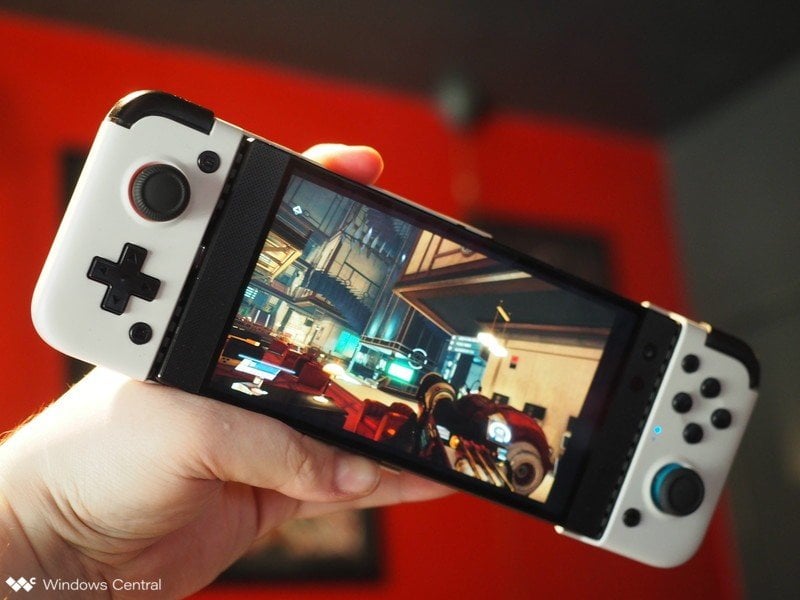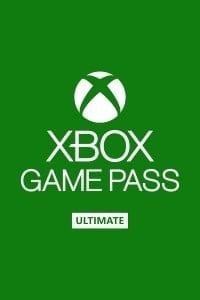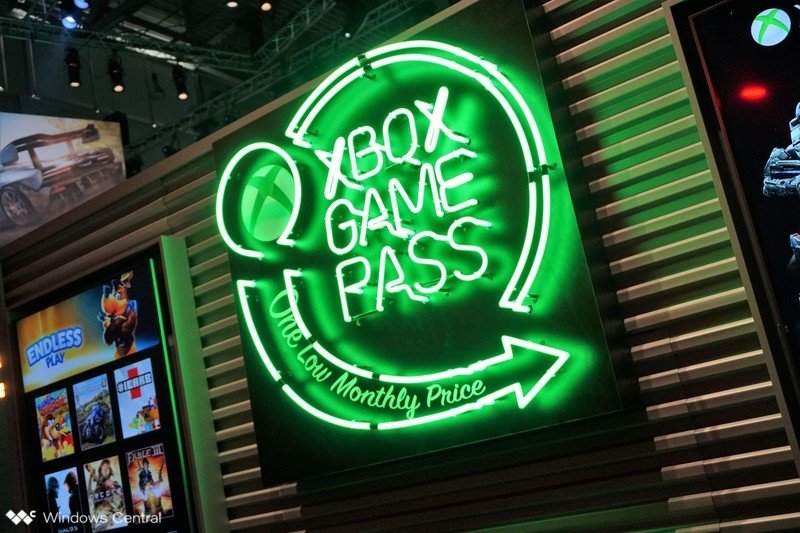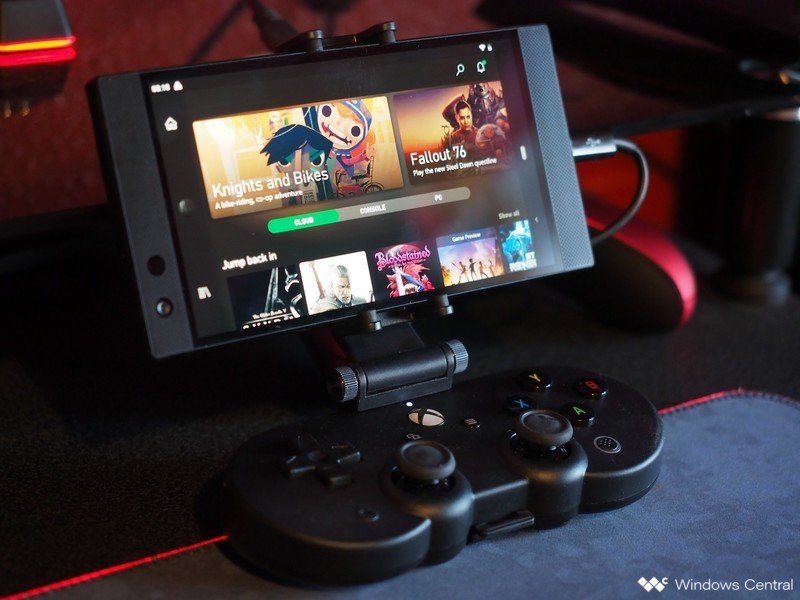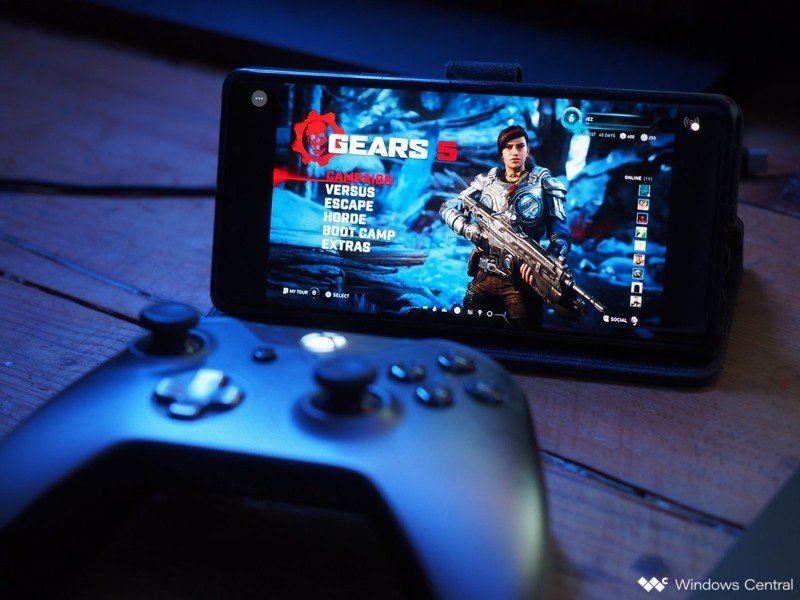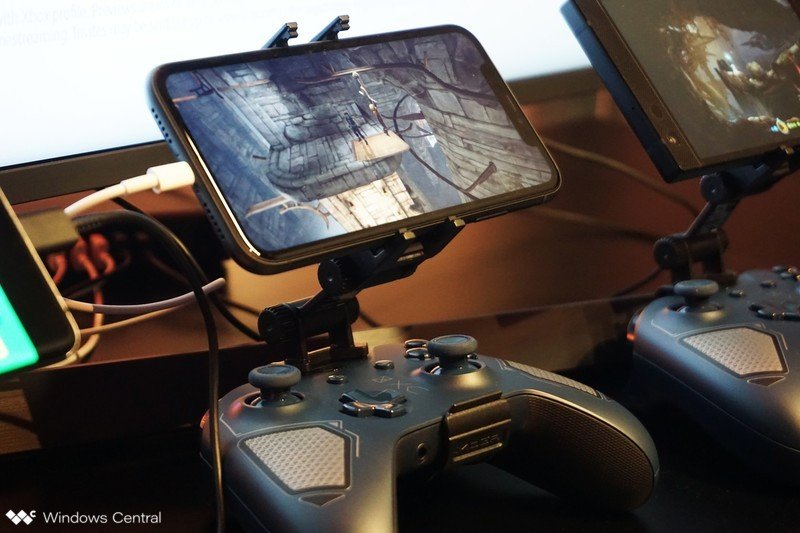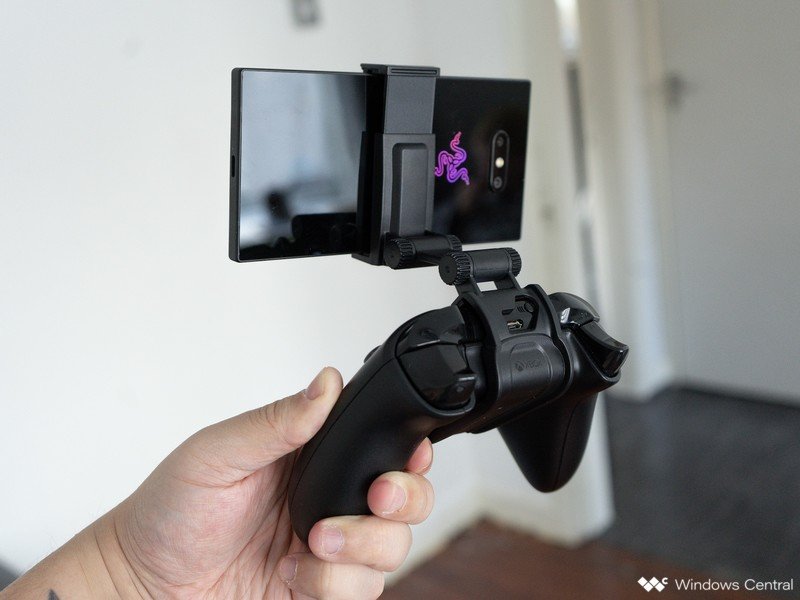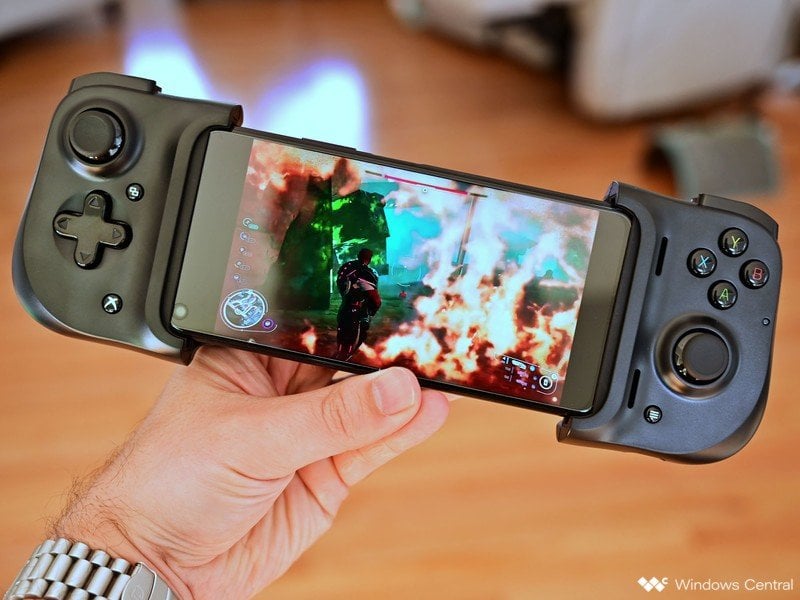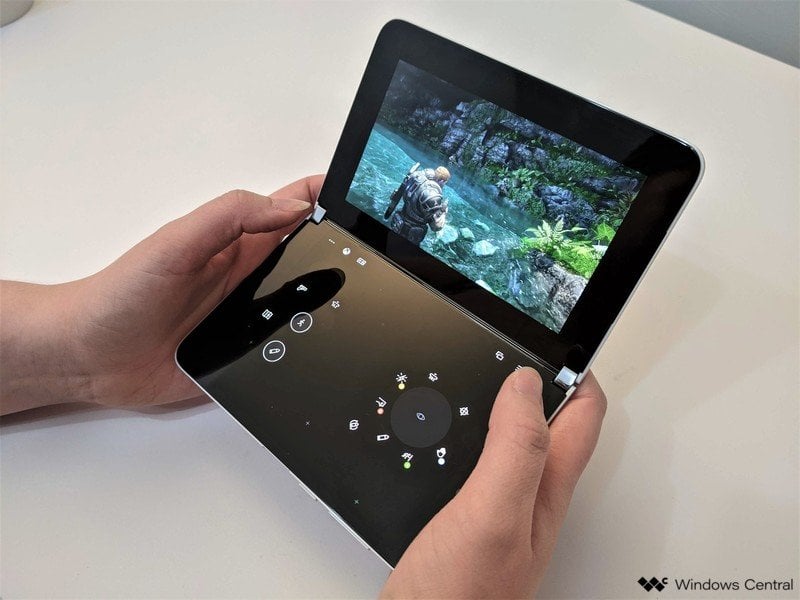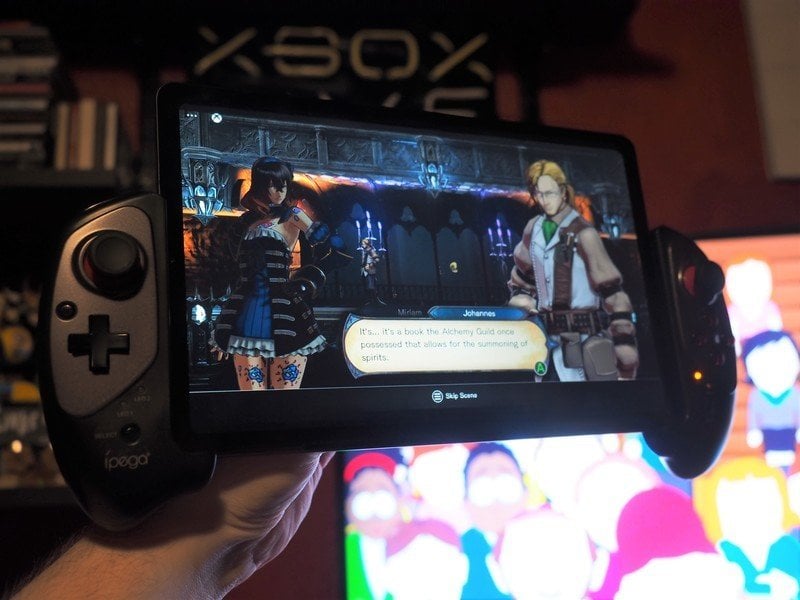Discussing the state of Xbox Game Pass Cloud Gaming in 2021.
One of Microsoft’s biggest bets for the future of Xbox is Xbox Game Pass. The service provides all-you-can-eat access to a variety of games for a relatively low monthly fee. One big component of Xbox Game Pass is its cloud streaming platform, generally known by its codename Project xCloud. The full list of cloud streaming Xbox Game Pass titles grows every month, with many games coming with bespoke touch controls.
Xbox Game Pass cloud streaming is still technically in beta, and hasn’t yet fully rolled out to all the major markets Xbox is involved in. As such, we’ll continually update this review in the months and years ahead to reflect changes and improvements coming to the platform. Regardless, we thought we’d showcase the best of what Xbox Game Pass cloud streaming is today, and give a final verdict on how it stacks up to the competition, and its overall value.
This is Xbox Game Pass cloud streaming, the artist formerly known as Project xCloud.
Xbox Game Pass Cloud Gaming
Bottom line: Xbox Game Pass Ultimate’s cloud gaming service is undoubtedly a market leader, providing the largest breadth of content, most intuitive platform, and biggest first-party lineup by a country mile. The only serious competitors in the space simply can’t meet Microsoft on its content lineup, nor its cloud pervasiveness. Microsoft may be slightly behind some of its contemporaries on latency, but the gap is closing quickly, making XCloud the service most likely to hit mainstream adoption.
The good
- Biggest and highest-quality content library by a mile
- Syncing progress between cloud and native versions seamlessly
- Ties into the wider Xbox ecosystem
- Solid latency with powerful touch APIs for mobile-native experiences
The bad
- Not many devs are using the cloud-aware APIs for touch-native experiences yet
- Loading speeds are abysmally slow, based on Xbox One tech
- Ecosystem for quality ergonomic hardware accessories is limited
- No family plan
Xbox Game Pass Cloud Gaming: Price and availability
Xbox Game Pass Ultimate is required to access the cloud gaming portion of the service. Game Pass Ultimate gives you Xbox Live Gold for multiplayer access on Xbox consoles, alongside a few hundred games to play natively on your Xbox console or capable Windows PC. The cloud gaming portion gives you access to dozens of games on an Android smart device, with a web version of the service currently in testing to circumvent Apple’s anti-consumer blocks on its anti-competitive iOS app store.
You can grab Xbox Game Pass Ultimate from Microsoft’s website. There’s a free trial for newcomers, coming in at just $1 for the first month, which is an absurdly good deal.
Right now, Xbox Game Pass streaming is available in 22 regions: Austria, Belgium, Canada, Czech Republic, Denmark, Finland, France, Germany, Hungary, Ireland, Italy, South Korea, Netherlands, Norway, Poland, Portugal, Slovakia, Spain, Sweden, Switzerland, the UK, and the United States. Your experience will vary based on locality to the nearest Microsoft Azure data centers, though, and the connection you’re playing on.
Xbox Game Pass Cloud Gaming: The good stuff
Xbox Game Pass’s cloud platform is pioneering, and many years in the works. We have reports and documents dating all the way back to 2012, almost 10 years ago, where Microsoft began exploring and ramping up its tech in this space. Since then, Microsoft has become something of a cloud powerhouse, hitting an astronomical market cap in a battle for service dominance with Amazon and others. For its Xbox customers, Microsoft is gradually rolling out the ability to take your console experience with you anywhere, on any device, at any time. Well, provided you have a consistent connection anyway.
One of the biggest drawbacks of xCloud versus some of its competitors was latency superiority. Google’s Stadia and others consistently best Microsoft’s services in tests, at least previously. More recently, Microsoft rolled out some kind of OS update on the server side, producing latency and streaming quality far closer to what we get on Stadia. The gap is steadily closing, and I’m now able to reliably play Halo at 60 FPS without having to account for lag or major artifacting.
It’s difficult to review latency definitively, because for you as the end-user, so many variables can impact your experience. I don’t have the most amazing internet setup where I am currently, with 100MB down, and 10MB up with UK ISP Virgin Media. I’m also using their in-house Virgin Media “SuperHub,” made in partnership with Netgear, which is notoriously bad for signal degradation. Despite having an arguably subpar setup, I’m seeing performance quality far closer to Stadia than I was previously, at least where latency and artifacting are concerned. Although, I would say that Stadia still has an edge here, as of May 2021.
Where Stadia definitively does not have an edge is the library quality. Microsoft has invested a mountain of cash into its portfolio, buying various studios like Undead Labs, Compulsion, Obsidian, Playground Games, and the publisher ZeniMax Media itself, responsible for Fallout, The Elder Scrolls, and DOOM. Microsoft has made apparent its desire to include all of these games day one into Xbox Game Pass, which is the type of commitment Google Stadia, PlayStation Now, and others have simply failed to match. Microsoft has also partnered heavily with EA to bring many of its classics to the service, alongside various other major publishers. Games like Red Dead Online, Monster Hunter World, and Destiny 2 give you access to major third-party multiplayer experiences from your mobile device, in a world where phones are not yet able to handle native ports.
Some games are even cloud-aware, including the likes of Streets of Rage 4 and Minecraft Dungeons. Both of these games can be played entirely without an attached controller, with user interfaces designed and scaled to match your smartphone’s touch screen. This is where xCloud really shines in my view. If you’re gaming on your phone, chances are you don’t want to be heaving around an additional peripheral, which also needs to be charged up and most likely connected with Bluetooth. There is a range of great phone clips for Xbox Game Pass cloud gaming designed exactly for that purpose, but they’re a bit clunky to use, as we’ll discuss in the next section.
The Xbox ecosystem in general is already just far more cloud-aware and cloud-capable than some of the competing solutions out there. When I fire up Prey on my phone, my save files synchronize from the cloud, uploaded from my home Xbox. Right away, I’m back in my current save, and ready to get gaming. All of my friends are available to invite into games and all of my Xbox achievements sync up to my profile. All of this just works as a natural process of being in the Xbox ecosystem, without needing an additional subscription to access cloud saves or multiplayer. It’s all included in Xbox Game Pass, with cloud saves and achievements included for free as part of the Xbox ecosystem promise.
Microsoft’s Xbox Game Pass cloud streaming platform has some incredible promise, and works well for the most part, but there are a range of technical hurdles that remain, potentially holding back mainstream adoption.
Xbox Game Pass Cloud Gaming: The bad stuff
There are a few things that hold Project xCloud back, which are gradually being eliminated over time. This is a new ecosystem, with new tech, in relatively uncharted waters. Microsoft and its competitors are still exploring the space and figuring things out, so growing pains are to be expected. Let’s examine the biggest problems as of May 2021.
First of all, the experience of gaming on your phone, generally, isn’t very pleasant. Some games like Minecraft Dungeons and Streets of Rage 4 do have custom touch controls designed specifically to be played on your smartphone. Many others simply do not. The default Xbox gamepad touch experience is not great unless it has been designed specifically for the game in question, like the previously mentioned titles. By default, it interferes with UI elements, gameplay, and beyond.
For most, you’ll want to use one of these products from our best controllers for Xbox cloud gaming roundup. A lot of these are expensive, though, and have a range of downsides of their own. The phone clips for mounting your phone on top of a controller are most often cheap, flimsy, and unbalanced, leading to an uncomfortable ergonomic experience. Most of the phone controllers have their own downsides too, not least of all Bluetooth, which just sucks in general.
While using a Bluetooth connection to control xCloud games, you’re introducing an additional layer of latency, on top of the server connection. It might only be milliseconds, but they stack up, and contribute negatively to the overall experience.
Some of the best phone clip options, such as the Razer Kishi, support only a small subset of devices. Clamp-based ones like the GameSir X2 are often too small and uncomfortable when compared to a full-size Xbox controller that many of these games are designed for. These however at least incorporate USB-C, eliminating the extra lag from Bluetooth. The downside then becomes the phone screen size itself.
Most Xbox games on Xbox Game Pass’s cloud service are, as you might expect, designed for the big screen. Tiny fonts, minimalistic UI scaling, and zoomed-out cameras can make certain games just awful to play on a 5-7-inch display. They handle far better on a tablet device, such as these from our best tablets for Xbox cloud gaming roundup, but then you’re back at the original problem — having to carry around and charge a separate controller. Microsoft really needs to step in and build a device that others can follow, because the solutions out there right now aren’t fully hitting the mark, for various reasons.
The other big downside of Xbox Game Pass cloud gaming is the quality of the service. Microsoft has said that it intends to roll out Xbox Series X-level upgrades to its server infrastructure throughout this year, though. I’ve also received reports from those who are testing out the new servers, and they’ve said to me that it effectively eliminates the latency and resolution gap between Xbox Game Pass and Stadia, arguably its closest competitor in the space.
You simply can’t discount the massive technical achievement that is Project xCloud.
There are a lot of games that handle low latency well, though, including slower-paced games and turn-based titles. More fast-paced games like DOOM or RAGE 2 are still a bit outside the scope of what I’d call a good experience, though, given the latency. Server upgrades slated for this year should bridge the gap, though. The new servers will also deliver SSD loading speeds, which is another pain point of the current infrastructure.
Gaming on a handheld device is a markedly different experience to that of gaming on a console. If you’re on the go, you don’t want to be waiting several minutes for a game to load up. Right now, you have to wait for a server to boot up and log you in, and then you have to wait for the game to load. It can be a slow process on the current publicly accessible version of Xbox Game Pass, but it’s something that will see upgraded performance right around the corner.
Xbox Game Pass Cloud Gaming: Competition
Xbox Game Pass Ultimate doesn’t really have many serious competitors at the same level. PlayStation Now from Sony has roughly comparable performance to Xbox Game Pass cloud gaming and a robust presence on PC. As of writing, Xbox Game Pass is available widely only on Android, with a web version still in testing. However, Xbox Game Pass has a sizeable library advantage over PlayStation Now, albeit for a slightly higher price point. You do get access to the library natively on console and PC, however, but it remains a bit odd that there isn’t a tier of Xbox Game Pass that is cloud-streaming only. Perhaps that will come in the future.
The only other major competitor right now at a global level is Google’s Stadia. Stadia is arguably the best overall in terms of performance, but with Google closing its homegrown studios, its anemic library, and snail pace of service updates, it’s unlikely that Google is truly serious about the long-term viability of its Stadia business. The only other major competitor in the space is Amazon Luna, which is available only in the U.S. as of writing. There are rumors that other companies like Netflix and even Walmart are exploring an entry into cloud gaming in the future.
Xbox Game Pass Cloud Gaming: Should you subscribe?
Xbox Game Pass cloud gaming is a bundled feature with Xbox Game Pass Ultimate, which includes Xbox Live Gold, Game Pass for console, and Game Pass for PC. You really do get an absurd amount of content for $15 per month, providing you plan to make frequent use of it. If you’re planning to use only the cloud portion of the service, the value is degraded a bit. It makes me wonder why Microsoft has yet to offer a tier that is designed purely for cloud use, but perhaps that will come someday in the future. A family plan wouldn’t go amiss either. All that being said, you simply can’t discount the massive technical achievement that is Project xCloud. But is that enough to make it worth buying?
You should buy this if …
- You want to play Xbox games on the go
- You have access to a high-quality stable network environment
You shouldn’t buy this if …
- You’re not a fan of playing with touch controls on a small screen
- You don’t want to carry an Xbox controller around with you
- You have poor WiFi connectivity
Everything about Xbox Game Pass cloud streaming is ripe for improvement and iteration, and in a lot of ways, it reminds me of the early days of console gaming in general. This is a completely new paradigm and will potentially take some time to get right, but Microsoft is well placed to navigate the space, and potentially, ultimately, come out on top.
4
out of 5
Whether or not Xbox Game Pass cloud streaming is a worthwhile investment today though, is entirely at your discretion. For an introductory price of $1, however, Microsoft makes it pretty damned easy to try out.
Xbox Game Pass Cloud Gaming
Bottom line: Xbox Game Pass Ultimate offers cloud gaming as a bundled feature, and it does have a bunch of flaws and downsides. However, it costs only $1 to try out, and the full Game Pass Ultimate package offers a ton of value for gamers on Xbox and PC as well. XCloud may be the future, but it has a long way to go before it’s ready for mainstream adoption, potentially.

